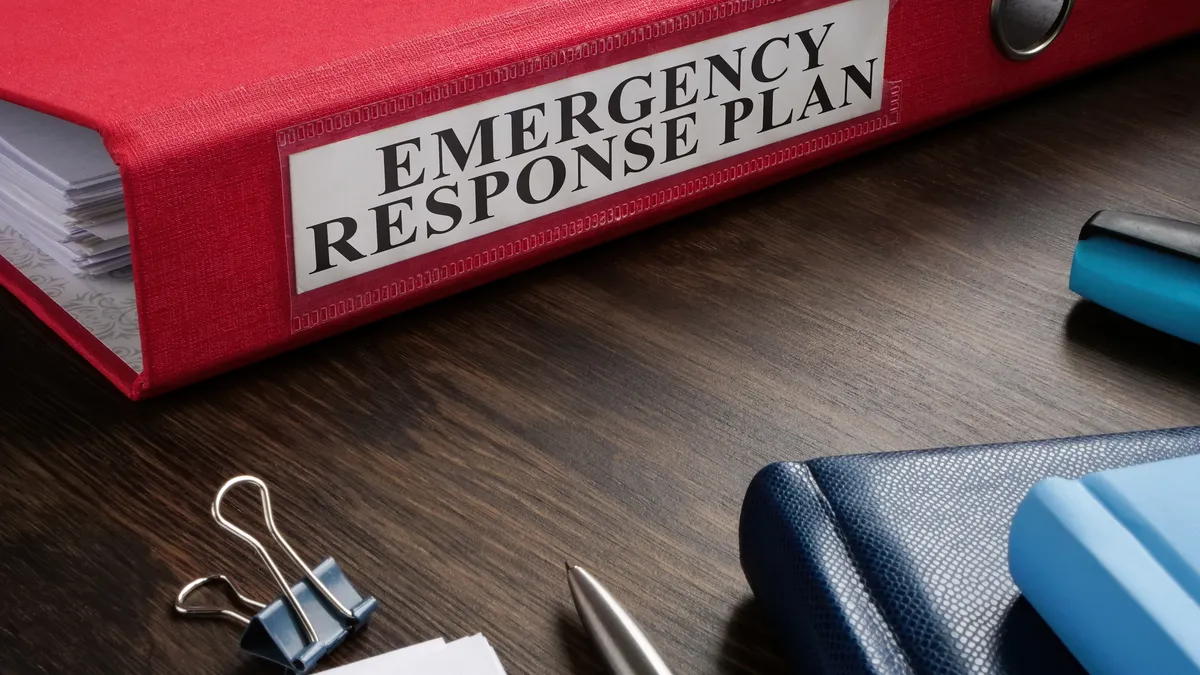Dive Brief:
- A rapid rise in climate change-related natural disasters is making building resilience a growing priority for real estate managers across North America, according to a survey by global research firm Verdantix shared with Facilities Dive. Twenty-seven percent of respondents called it their top priority, nearly double the 14% who said so in 2022.
- About half of North American respondents (52%) called meeting corporate sustainability disclosure regulations a high priority, the survey found, in light of the expectation that the U.S. Securities and Exchange Commission’s climate disclosure rules will come out in April. Ninety-six percent of facilities managers and real estate professionals surveyed say they will be collecting ESG data next year.
- “With North America traditionally behind other regions in building decarbonization and sustainability, new climate and sustainability disclosure regulations represent a major risk for the real estate sector. We could see insurers pulling the plug on facilities with insufficient climate resilience and investors shunning companies with poor sustainability performance across their real estate,” Claire Stephens, research director of smart buildings at Verdantix, said in a Dec. 13 press release.
Dive Insight:
Extreme weather events are leading North America’s real estate managers to strengthen their focus on decarbonization and building resilience, said Verdantix, which polled over 300 real estate and facilities management decision-makers and budget holders across the U.S., Europe, the Middle East, Africa and the Asia-Pacific regions between July and September.
With certain U.S. commercial insurers excluding natural disasters from coverage and raising rates due to escalating climate change, building resilience has grown as a top priority, Verdantix said. The company pointed to the increased frequency of climate-related disasters in the U.S.: Through Dec. 8, the U.S. has experienced 25 confirmed climate disaster events with losses in excess of $1 billion, compared with an average of 8.1 disasters between 1980 and 2022, the National Centers for Environmental Information said.
Despite this trend, 28% of real estate managers still view building resilience as their least urgent objective, indicating some may be underestimating the escalating risk of climate change, Verdantix said.
“North American real estate and facilities management decision-makers are responding to more frequent systemic threats to worker safety that cascade across companies and industries, such as the extreme weather events we saw nationally this year, from flooding in Florida to wildfires in California,” Bill Pennington, vice president of research, environmental health and safety, and risk management at Verdantix, said in the press release.
Companies need to accelerate their efforts and transition from a reactive stance to a proactive approach that addresses risk factors in advance, Pennington added, suggesting that enterprises prioritize upskilling their boards in climate risk by adding climate scientists to the C-suite to ensure they receive the right guidance.
Stephens noted that green technologies like low-carbon on-site energy generation are becoming more prevalent in various buildings, particularly in industries like hotels and leisure. Thirty-three percent of North American companies are actively exploring heat pumps in buildings as an option, Verdantix said. Stephens emphasized that it has become routine for major corporations to actively involve real estate departments in their efforts to achieve companywide sustainability goals and meet compliance norms.














